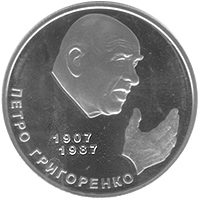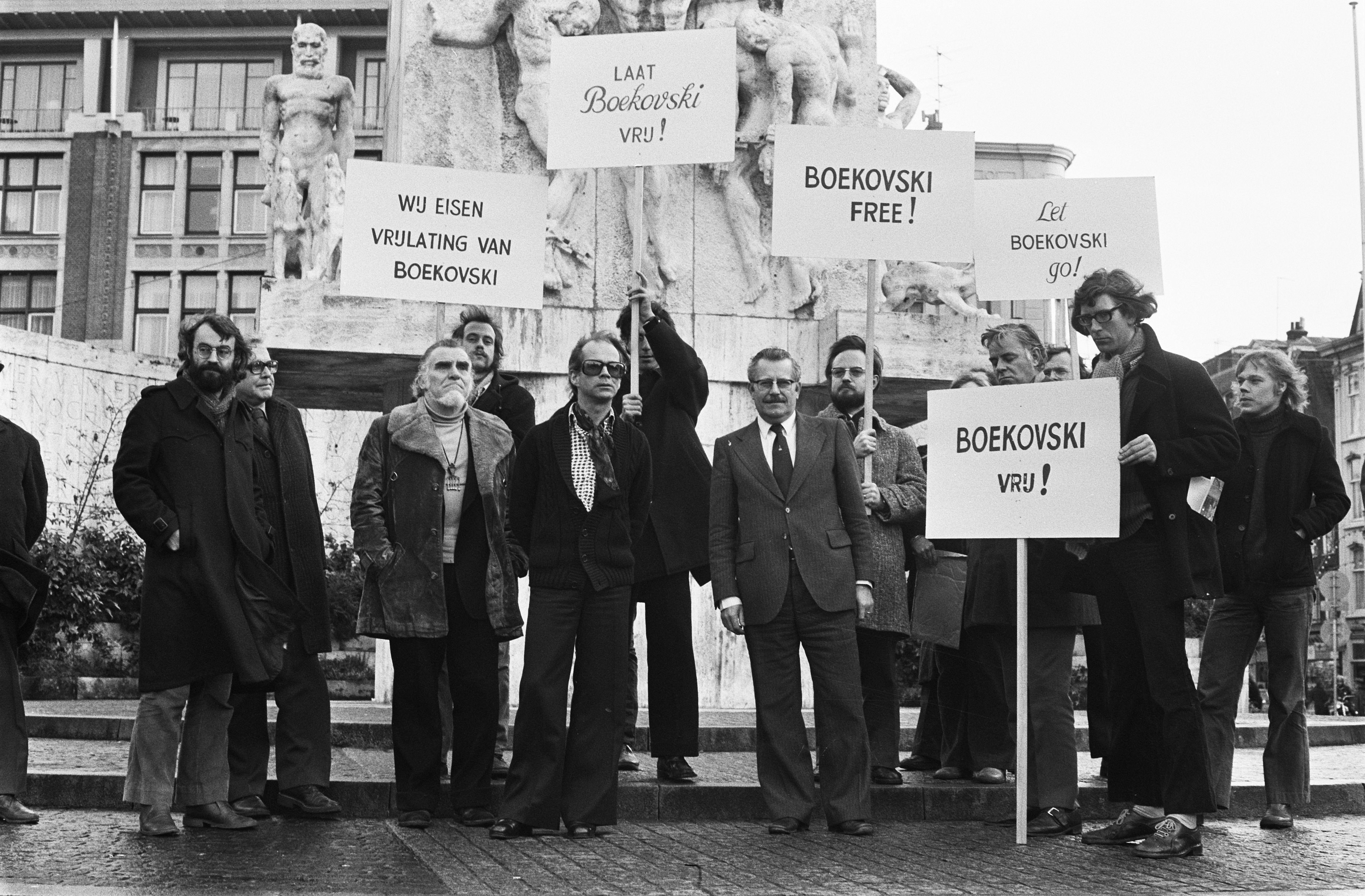|
Sergey Kovalyov
Sergei Adamovich Kovalyov (also spelled Sergey Kovalev; russian: link=no, Сергей Адамович Ковалёв; 2 March 1930 – 9 August 2021) was a Russian human rights activist and politician. During the Soviet period he was a dissident and, after 1975, a political prisoner. Early career and arrest Kovalyov was born in the town of Seredyna-Buda, near Sumy (in Soviet Union, now Ukraine)."Sergei Kovalyov, Heir to Sakharov who always put Principles first, Dies At 91" (9 August 2021) In 1932, his family moved to Podlipki village near Moscow. In 1954, Kovalyov graduat ... [...More Info...] [...Related Items...] OR: [Wikipedia] [Google] [Baidu] |
Seredyna-Buda
Seredyna-Buda ( uk, Сере́дина-Бу́да) is a city in Shostka Raion of Sumy Oblast of northeastern Ukraine. It was the administrative center of Seredyna-Buda Raion until it was abolished on 18 July 2020. It is located on Bryansk to Konotop branch line and is served by the railway station Zernove. Seredyna-Buda was founded in the 17th century by Old Believers migrated from Russia Russia (, , ), or the Russian Federation, is a transcontinental country spanning Eastern Europe and Northern Asia. It is the largest country in the world, with its internationally recognised territory covering , and encompassing one-ei .... It has had town status since 1964. Population: In 2001, population was 7,500. References Cities in Sumy Oblast Novgorod-Seversky Uyezd Populated places established in the 17th century 17th-century establishments in Ukraine {{Sumy-geo-stub ... [...More Info...] [...Related Items...] OR: [Wikipedia] [Google] [Baidu] |
Political Prisoner
A political prisoner is someone imprisoned for their political activity. The political offense is not always the official reason for the prisoner's detention. There is no internationally recognized legal definition of the concept, although numerous similar definitions have been proposed by various organizations and scholars, and there is a general consensus among scholars that "individuals have been sanctioned by legal systems and imprisoned by political regimes not for their violation of codified laws but for their thoughts and ideas that have fundamentally challenged existing power relations". The status of a political prisoner is generally awarded to individuals based on declarations of non-governmental organizations like Amnesty International, on a case-by-case basis. While such status are often widely recognized by the international public opinion, they are often rejected by individual governments accused of holding political prisoners, which tend to deny any bias in th ... [...More Info...] [...Related Items...] OR: [Wikipedia] [Google] [Baidu] |
Pyotr Grigorenko
Petro Grigorenko or Petro Hryhorovych Hryhorenko ( uk, Петро́ Григо́рович Григоре́нко, russian: Пётр Григо́рьевич Григоре́нко, link=no, – 21 February 1987) was a high-ranking Soviet Army commander of Ukrainian descent, who in his fifties became a dissident and a writer, one of the founders of the human rights movement in the Soviet Union. For 16 years, he was a professor of cybernetics at the Frunze Military Academy and chairman of its cybernetic section before joining the ranks of the early dissidents. In the mid-1970s Grigorenko helped to found the Moscow Helsinki Group and the Ukrainian Helsinki Group, before leaving the USSR for medical treatment in the United States. The Soviet government barred his return, and he never again returned to the Soviet Union. In the words of Joseph Alsop, Grigorenko publicly denounced the "totalitarianism that hides behind the mask of so-called Soviet democracy." Early life Petro Grigor ... [...More Info...] [...Related Items...] OR: [Wikipedia] [Google] [Baidu] |
Mustafa Dzhemilev
Mustafa Abduldzhemil Jemilev ( crh, Mustafa Abdülcemil Cemilev, Мустафа Абдюльджемиль Джемилев, ), also known widely with his adopted descriptive surname Qırımoğlu "Son of Crimea" ( Crimean Tatar Cyrillic: , ; born 13 November 1943, Ay Serez, Crimea), is the former Chairman of the Mejlis of the Crimean Tatar People and a member of the Ukrainian Parliament since 1998. Commissioner of the President of Ukraine for the Affairs of the Crimean Tatar People (2014–2019). He is a member of the Crimean Tatar National Movement and a former Soviet dissident. Biography Life in the Soviet Union Dzhemilev was born on 13 November 1943 in Ay-Serez, Crimea, then Russian SFSR, though at the time under Nazi occupation. He was only six months old when his family, with the rest of the Crimean Tatar population, was deported by Soviet authorities in May 1944, soon after Soviet forces retook the peninsula. He grew up in exile, in the Uzbek SSR. At the age of 18, Dzh ... [...More Info...] [...Related Items...] OR: [Wikipedia] [Google] [Baidu] |
Vladimir Bukovsky
Vladimir Konstantinovich Bukovsky (russian: link=no, Влади́мир Константи́нович Буко́вский; 30 December 1942 – 27 October 2019) was a Russian-born British human rights activist and writer. From the late 1950s to the mid-1970s, he was a prominent figure in the Soviet dissident movement, well known at home and abroad. He spent a total of twelve years in the psychiatric prison-hospitals, labour camps, and prisons of the Soviet Union. After being expelled from the Soviet Union in late 1976, Bukovsky remained in vocal opposition to the Soviet system and the shortcomings of its successor regimes in Russia. An activist, a writer, Jacket and a neurophysiologist,. he is celebrated for his part in the campaign to expose and halt the political abuse of psychiatry in the Soviet Union. A member of the international advisory council of the Victims of Communism Memorial Foundation, a director of the Gratitude Fund (set up in 1998 to commemorate an ... [...More Info...] [...Related Items...] OR: [Wikipedia] [Google] [Baidu] |
The New York Review Of Books
''The New York Review of Books'' (or ''NYREV'' or ''NYRB'') is a semi-monthly magazine with articles on literature, culture, economics, science and current affairs. Published in New York City, it is inspired by the idea that the discussion of important books is an indispensable literary activity. ''Esquire'' called it "the premier literary-intellectual magazine in the English language." In 1970, writer Tom Wolfe described it as "the chief theoretical organ of Radical Chic". The ''Review'' publishes long-form reviews and essays, often by well-known writers, original poetry, and has letters and personals advertising sections that had attracted critical comment. In 1979 the magazine founded the '' London Review of Books'', which soon became independent. In 1990 it founded an Italian edition, ''la Rivista dei Libri'', published until 2010. The ''Review'' has a book publishing division, established in 1999, called New York Review Books, which publishes reprints of classics, as wel ... [...More Info...] [...Related Items...] OR: [Wikipedia] [Google] [Baidu] |
Chronicle Of Current Events
''A Chronicle of Current Events'' (russian: Хро́ника теку́щих собы́тий, ''Khronika tekushchikh sobytiy'') was one of the longest-running ''samizdat'' periodicals of the post-Stalin USSR. This unofficial newsletter reported violations of civil rights and judicial procedure by the Soviet government and responses to those violations by citizens across the Soviet Union. Appearing first in April 1968, it soon became the main voice of the Soviet human rights movement, inside the country and abroad. During the 15 years of its existence the ''Chronicle'' covered 424 political trials, in which 753 people were convicted. Not one of the accused was acquitted. In addition, 164 people were declared insane and sent for indefinite periods of compulsory treatment in psychiatric hospitals. In 1973 the novelist and literary critic Lydia Chukovskaya wrote Despite constant harassment by the Soviet authorities more than sixty issues of the ''Chronicle'' were compiled and publ ... [...More Info...] [...Related Items...] OR: [Wikipedia] [Google] [Baidu] |
Samizdat
Samizdat (russian: самиздат, lit=self-publishing, links=no) was a form of dissident activity across the Eastern Bloc in which individuals reproduced censored and underground makeshift publications, often by hand, and passed the documents from reader to reader. The practice of manual reproduction was widespread, because most typewriters and printing devices required official registration and permission to access. This was a grassroots practice used to evade official Soviet censorship. Name origin and variations Etymologically, the word ''samizdat'' derives from ''sam'' (, "self, by oneself") and ''izdat'' (, an abbreviation of , , "publishing house"), and thus means "self-published". The Ukrainian language has a similar term: ''samvydav'' (самвидав), from ''sam'', "self", and ''vydavnytstvo'', "publishing house". A Russian poet Nikolay Glazkov coined a version of the term as a pun in the 1940s when he typed copies of his poems and included the note ''Samsebyaizd ... [...More Info...] [...Related Items...] OR: [Wikipedia] [Google] [Baidu] |
Communist Party Of The Soviet Union
" Hymn of the Bolshevik Party" , headquarters = 4 Staraya Square, Moscow , general_secretary = Vladimir Lenin (first) Mikhail Gorbachev (last) , founded = , banned = , founder = Vladimir Lenin , newspaper = ''Pravda'' , position = Far-left , international = , religion = State Atheism , predecessor = Bolshevik faction of the RSDLP , successor = UCP–CPSU , youth_wing = Little Octobrists Komsomol , wing1 = Young Pioneers , wing1_title = Pioneer wing , affiliation1_title = , affiliation1 = Bloc of Communists and Non-Partisans (1936–1991) , membership = 19,487,822 (early 1989 ) , ideology = , colours = Red , country = the Soviet Union The Communist Party of the Soviet Union (CPSU),; abbreviated in Russian as or also known by various other names during its history, was the founding and ruling party of the Sovie ... [...More Info...] [...Related Items...] OR: [Wikipedia] [Google] [Baidu] |
Khrushchev
Nikita Sergeyevich Khrushchev (– 11 September 1971) was the First Secretary of the Communist Party of the Soviet Union from 1953 to 1964 and chairman of the country's Council of Ministers from 1958 to 1964. During his rule, Khrushchev stunned the communist world with his denunciation of his predecessor Joseph Stalin's crimes, and embarked on a policy of de-Stalinization with his key ally Anastas Mikoyan. He sponsored the early Soviet space program, and enactment of moderate reforms in domestic policy. After some false starts, and a narrowly avoided nuclear war over Cuba, he conducted successful negotiations with the United States to reduce Cold War tensions. In 1964, the Kremlin leadership stripped him of power, replacing him with Leonid Brezhnev as First Secretary and Alexei Kosygin as Premier. Khrushchev was born in 1894 in a village in western Russia. He was employed as a metal worker during his youth, and he was a political commissar during the Russian Civil War. ... [...More Info...] [...Related Items...] OR: [Wikipedia] [Google] [Baidu] |
Trofim Lysenko
Trofim Denisovich Lysenko (russian: Трофим Денисович Лысенко, uk, Трохи́м Дени́сович Лисе́нко, ; 20 November 1976) was a Soviet agronomist and pseudo-scientist.''An ill-educated agronomist with huge ambitions, Lysenko failed to become a real scientist, but greatly succeeded in exposing of the “bourgeois enemies of the people.” From such a “scion” who was “grafted” to the Stalinist totalitarian regime “stock”, impressive results could have been expected—and were indeed achieved.'' He was a strong proponent of Lamarckism, and rejected Mendelian genetics in favour of his own idiosyncratic, pseudoscientific ideas later termed Lysenkoism. In 1940, Lysenko became director of the Institute of Genetics within the USSR's Academy of Sciences, and he used his political influence and power to suppress dissenting opinions and discredit, marginalize, and imprison his critics, elevating his anti-Mendelian theories to state-san ... [...More Info...] [...Related Items...] OR: [Wikipedia] [Google] [Baidu] |
Biophysicist
Biophysics is an interdisciplinary science that applies approaches and methods traditionally used in physics to study biological phenomena. Biophysics covers all scales of biological organization, from molecular to organismic and populations. Biophysical research shares significant overlap with biochemistry, molecular biology, physical chemistry, physiology, nanotechnology, bioengineering, computational biology, biomechanics, developmental biology and systems biology. The term ''biophysics'' was originally introduced by Karl Pearson in 1892.Roland Glaser. Biophysics: An Introduction'. Springer; 23 April 2012. . The term ''biophysics'' is also regularly used in academia to indicate the study of the physical quantities (e.g. electric current, temperature, stress, entropy) in biological systems. Other biological sciences also perform research on the biophysical properties of living organisms including molecular biology, cell biology, chemical biology, and biochemistry. ... [...More Info...] [...Related Items...] OR: [Wikipedia] [Google] [Baidu] |








